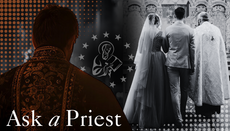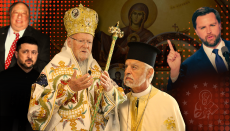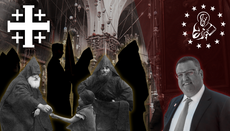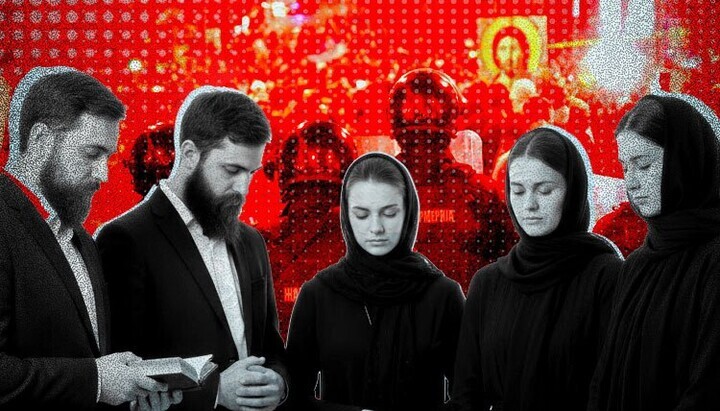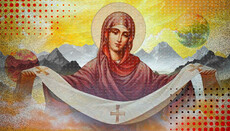“Don’t Write Off Christianity”: Bishop Job of Stuttgart on Life, Ethics, and the Role of the Church
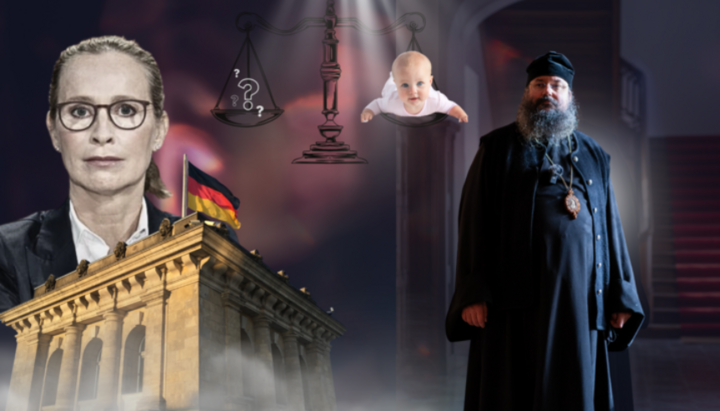
In an exclusive interview with UOJ, ROCOR’s Bishop Job discusses the Orthodox Church’s stance on abortion, family planning, and the Church’s spiritual duty in a secularized society.
In many Western societies, the issue of life protection is once again central to political and ethical debate. Tensions often rise when religious convictions intersect with legal decision-making—particularly in the appointment of constitutional judges who openly question existing abortion laws. The Russian Orthodox Church Outside of Russia (ROCOR) has always upheld a clear position on the sanctity of human life. A journalist from the Union of Orthodox Journalists (UOJ) in Germany spoke with Bishop Job of Stuttgart about the Church’s stance, the responsibility of Christians, and the spiritual dimension of a deeply contentious societal issue.
Your Excellency, Bishop Job, how does ROCOR define the concept of “life protection” from a theological perspective?
Bsp. Job: Life protection is a legal term—a secular term. As theologians, we concern ourselves with the ethical foundations behind legislation. It’s important to understand that Western democracies don’t derive their laws directly from Christian teachings but rather from Enlightenment values, which themselves rest on a Christian foundation.
That is, the law doesn’t explicitly draw from biblical commandments but from a somewhat vague notion of human rights—in this case, the right to life. Scripture is clear that God is the one who gives life, and only He has the right to take it.
Human beings are not permitted to take life or shed the blood of others.
Animals are a different matter. Modern states often exaggerate in this area, going beyond biblical models. The fact that people eat meat, for example, is entirely normal and permitted in the Bible.
Thank you. When does human life begin from the Orthodox perspective?
Bsp. Job: That’s something of a trick question, because in earlier times, people didn’t really know what happened in the womb. Only when external signs appeared—like a heartbeat or the visible growth of the mother’s belly—did they know that a life was present.
One of the oldest moral principles of Christianity is to equate abortion with murder.
Abortion is any interruption of that life process. Today, theologians debate exactly when life begins—whether it’s at fertilization, or when the embryo becomes viable—but I find it unhelpful to draw arbitrary lines. From a Christian point of view, we dishonor life the moment we try to define it in days or weeks.
If we can already observe and detect so much, then any attempt to interfere with developing life is a sin. It’s an attempt to kill.
Following that logic, would contraceptives fall into the same category?
Bsp. Job: When it comes to contraception, the Orthodox view differs from the Roman Catholic one. The Catholic Church is well known for strictly opposing both condoms and the pill. Their reasoning is that love between a man and a woman is only blessed by God if it potentially leads to the creation of new life—that intercourse is solely for procreation, and anything else is sinful. Sex for love or pleasure is considered a sin.
We don’t have such a codified ethical teaching in Orthodoxy, but the general consensus among Orthodox theologians is that non-abortive contraception may be appropriate within the context of family planning, and that marital love is more than just childbearing.
Your Grace, how does ROCOR view women who are considering or have already undergone an abortion in difficult circumstances?
Bsp. Job: The so-called Social Doctrine of the Russian Orthodox Church (published in 2001—the first such document from any Orthodox Church to address these issues) states that while abortion is still considered murder according to ancient and contemporary Church law, the Church takes the human dimension seriously. The experiences and burdens of the women involved must be acknowledged.
Thus, the spiritual father or confessor will consider the specific situation, offering guidance on what sort of penance may be appropriate. This is clearly not equivalent to the sin of someone who kills deliberately or maliciously.
Yes, there is the traditional phrase in the Church: “Abortion is murder,” which typically brings with it strict penances—but I’m glad that ROCOR and other Orthodox Churches have taken a more nuanced view.
In secular societies, it’s often emphasized that Church and State must remain separate. What role should Christian ethics play in public discourse on abortion?
Bsp. Job: This separation isn’t absolute. Lawmakers and even constitutional courts in Germany often draw on society’s ethical norms—norms which have historically been shaped by Christianity. Thank God, the majority of Germans still consider themselves Christian.
But as Christianity weakens, as historically rooted confessions—especially the Protestant Church—abandon their own moral teachings, the legal system shifts. The more these churches retreat, the more lawmakers feel bound to a liberal, libertarian agenda that lowers moral standards across the board.
Given that trend, how do you assess the current debate over the recent nomination of a constitutional judge who has called the abortion law “fundamentally problematic”?
Bsp. Job: It’s a sign of the times. Everywhere we look, society—and thus the law—softens and shifts its moral standards. Christianity, meanwhile, plays a smaller and smaller role.
It’s not any one party or person’s fault. People act from their worldview, from the values they were raised with. We Christians bear part of the blame, especially the Church, when we fail to clearly proclaim Christ’s message.
That’s a powerful observation. Critics now fear a quiet return to restrictive abortion laws. What do you say to them?
Bsp. Job: Personally, I was positively surprised that Germany’s Christian Democrats listened to conservative Christians and engaged seriously with the debate, rather than just trading favors for political gain. That’s a healthy sign for democracy.
We all saw how the political pendulum swung to the right in the last election because much of the population couldn’t follow the far-left positions of some parties. It’s unrealistic what’s being forced on society.
So yes, thank God people raised their voices and tried to influence the direction. We’re experiencing, as in the U.S., a polarization—a clash between traditional values and a new morality, where a tree or animal may be considered more valuable than a human life. I’m exaggerating, of course, but you get the point.
That pendulum may indeed swing back too far. We see it already—immigration laws in the U.S. becoming overly strict, for example. That’s why it’s our duty on the conservative side to remain vigilant and avoid excess.
Thank you for such a nuanced answer. It’s true that going too far right also carries dangers. Back to practical matters: How does ROCOR actively support life protection and women in crisis? Do you collaborate with other life-affirming organizations or confessions?
Bsp. Job: First and foremost, it’s worth noting that Orthodox Christians—especially youth—are actively involved in pro-life marches in Germany. In Berlin, Munich, and other cities, these demonstrations take place yearly, sometimes more often, and our clergy and faithful are regularly present. It’s a serious commitment for us.
Beyond that, we’re not as developed in terms of professional crisis pregnancy centers. Instead, we focus more on pastoral, spiritual care, handled by local priests. Each situation is unique and doesn’t always require a trained counselor—it requires someone who can address the whole person.
That’s a strength, not a weakness, because we treat the root of the problem—the state of the soul—not just the visible symptom.
Would it be fair to say that the counselor must also be a bearer of moral values, not just a technician?
Bsp. Job: Exactly. “Bearer of moral values” is a good phrase. Our priests (usually married, not monastics) are held to high standards—they must be in their first marriage, not divorced, and serve as role models. Their personal experience equips them to offer real pastoral help rooted in spiritual life.
Finally, Your Grace, if you could offer a message to women, men, policymakers, and even critics of the Church’s position—what would you say?
Bsp. Job: Especially here in Germany, I would say: Don’t write off Christianity.
Anyone who takes Christ seriously—not just as part of our cultural heritage, but as truth—will also be able to shape the future rightly.
Thank you, Your Excellency, for your time and for a very thoughtful conversation.
Bsp. Job: Thank you. May God bless you.
